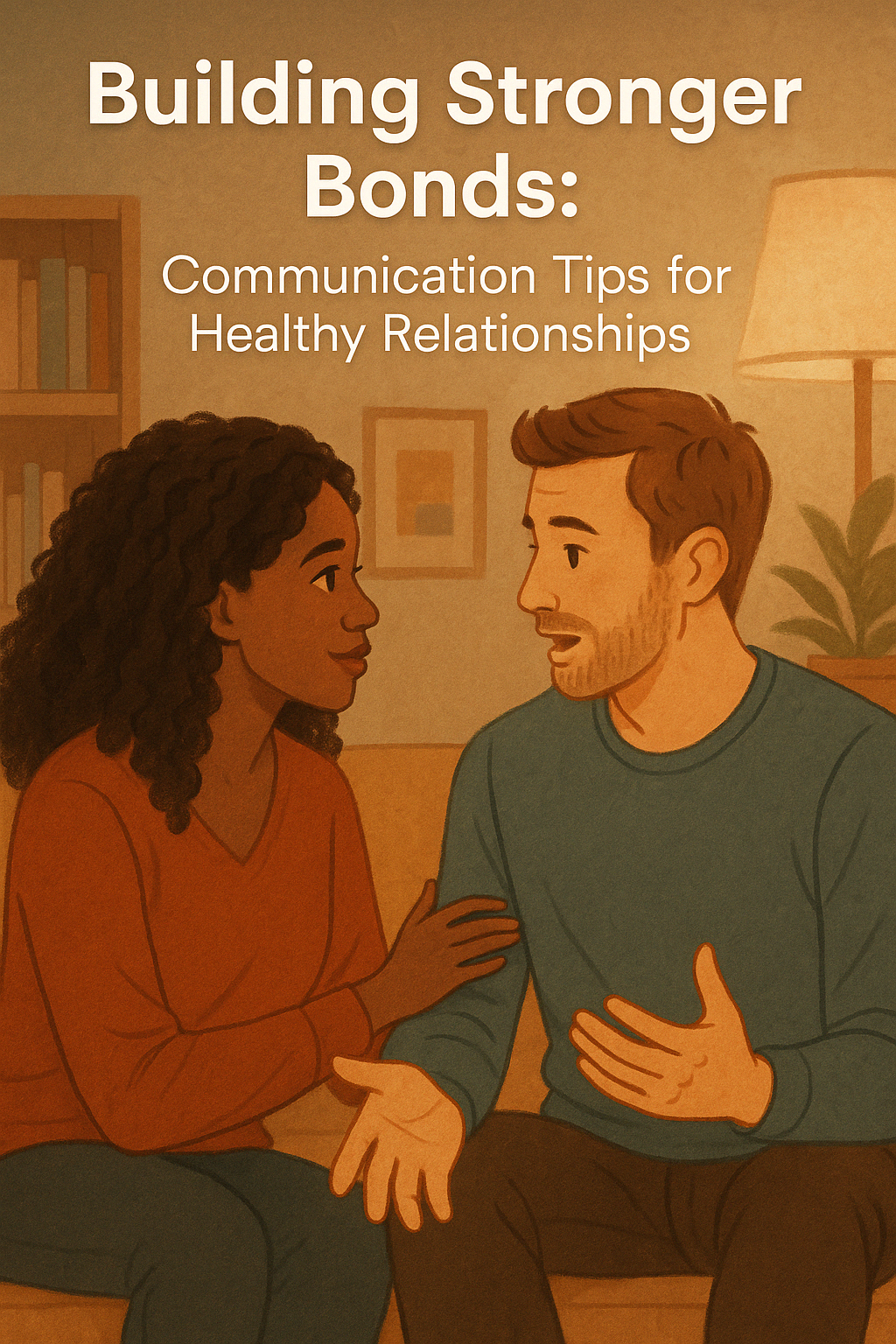Whether it’s a romantic partner, friend, sibling, or even a parent—every relationship thrives on one thing: communication.
But let’s be honest—talking is easy. Understanding, on the other hand? That takes patience, emotional maturity, and sometimes a deep breath before replying.
Strong communication doesn’t mean talking more—it means connecting better. And in a world full of distractions and assumptions, learning how to truly connect can transform your relationships from just “okay” to deeply fulfilling.
Let’s break down how.
🌱 Why Good Communication is the Foundation of Every Healthy Relationship
Think of communication like the roots of a tree.
Even if the leaves look okay, without healthy roots, everything eventually weakens.
Clear, compassionate communication helps to:
- Resolve conflicts peacefully
- Express needs without guilt
- Build trust and emotional intimacy
- Feel seen, heard, and understood
And the best part? It’s a skill—not a personality trait. Meaning anyone can improve it.
🗣️ Communication Tips That Actually Work
1. Listen to Understand, Not to Reply
We’ve all done it—waiting for our turn to speak while the other person talks.
But real listening means pausing your own thoughts and giving your full attention.
Use phrases like:
- “So what I’m hearing is…”
- “That makes sense, I can see how you’d feel that way.”
Listening validates the other person’s experience, and validation is gold in relationships.
2. Speak from “I”, Not “You”
Instead of: “You never help me.”
Try: “I feel overwhelmed when I have to do everything alone.”
“I” statements reduce blame and open the door to problem-solving instead of defensiveness.
3. Don’t Expect Mind-Reading
Even if someone knows you well, they can’t always guess what you’re feeling or needing.
Say it clearly:
- “I need some alone time tonight.”
- “Can we talk about what happened earlier? It’s been on my mind.”
Clarity is kindness.
4. Body Language Matters
We communicate so much without words:
- Eye contact shows presence
- A gentle touch offers comfort
- Turning toward someone (not scrolling mid-convo) says “I care”
Your energy often speaks louder than your voice.
5. Be Curious, Not Critical
If something feels off, ask gently instead of accusing:
- “You seem distant lately—is everything okay?”
- “Did I say something that upset you?”
Questions invite conversation. Accusations shut it down.
6. Handle Conflict with Respect, Not Ego
Arguments are normal. But how we fight matters.
- No name-calling
- No silent treatment
- No “always” or “never” exaggerations
Healthy conflict says: “We have a problem, not you are the problem.”
7. Show Appreciation—Often
Don’t wait for big moments. Appreciate the little things:
- “Thanks for listening”
- “I love how you always make me laugh”
- “I noticed how hard you worked today, and I admire that.”
Affection and gratitude are the glue of deep connection.
💡 Real Talk: Growth Takes Practice
You won’t get it perfect every time—and that’s okay.
What matters is showing up with intention and a willingness to grow together.
Remember: it’s not about never arguing.
It’s about creating a space where both people feel safe to be honest, heard, and loved.
❤️ Final Thoughts: Speak with Love, Even When It’s Hard
At the end of the day, good communication isn’t about being a smooth talker or using fancy phrases. It’s about being real, being kind, and staying open—even when it’s uncomfortable.
So text that friend. Sit down with your partner. Open up to your sibling.
Because strong bonds aren’t built in a day. They’re built in conversations—one honest word at a time.

Leave a Reply